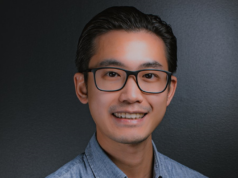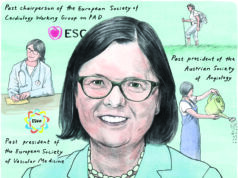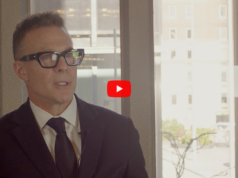
“The question is less about should we offer AI [artificial intelligence] education for vascular surgeons—I think most would agree that this will become necessary—and more about how and when it should be implemented, who should fund it, and who should offer it. These are all questions where nobody really has an answer.” So says Amun Hofmann (Klinik Ottakring, Vienna, Austria), speaking to Vascular News about a survey he is conducting on AI education for vascular surgeons.
“Right now, AI is a hot topic,” Hofmann says. In vascular surgery specifically, he highlights the proliferation of AI-related research papers, noting a particular interest among specialists in using AI to develop outcome prediction models, as well as in image recognition technology.
According to Hofmann, there is no question that AI will be incorporated into vascular surgery. The most pressing task at present, he says, is “trying to figure out what is the current sentiment about AI education and getting an understanding of how important vascular surgeons currently consider training in AI and AI education to be”.
One of the key issues, he notes, relates to the relative newness of AI technologies. “There’s no blueprint for what we’re doing right now,” he stresses. Hofmann proposes taking lessons from past pivotal junctures in vascular surgery when thinking about educating vascular surgeons on AI. “You can get a bit of an idea of how to integrate AI in vascular surgery by going back 20, 30 years and thinking about endovascular procedures,” he says, recalling the workshops, online resources, and proctors that helped to see in a new and novel minimally invasive era.
On the survey he is conducting, Hofmann shares that the central aim is “to get an understanding of how we can implement AI education in vascular surgery, curricula and training programmes,” highlighting unanswered questions including whether it should be mandatory, whether it should be included in the national curricula or separate from it, who should fund the education, and who should offer the education—whether this be a national or supranational body. “All these questions start to pop up,” Hofmann states.
“The survey is really just designed to gather current sentiments and get an idea of how vascular surgeons right now would envision AI education going forward.”
Homing in on the specifics, Hofmann shares that around 130 participants from 17 European countries have responded through SurveyMonkey so far. The aim is to include 300 participants in total. “Obviously, the more the better,” he says, “and the more the participants are spread across different geographic regions and countries within Europe the better.”
Summarising, Hofmann remarks that the survey is an “opportunity to really shape education”.
The survey can be found here.













